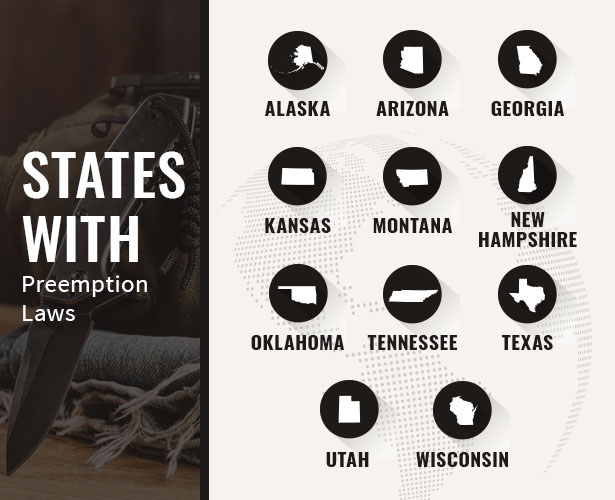
**What Knives are Legal to Carry in Washington State?**
In the Pacific Northwest, renowned for its magnificent wilderness, residents and outdoor enthusiasts often carry knives for practical purposes or self-defense. However, navigating Washington State’s knife laws can be perplexing. This comprehensive guide will provide an in-depth analysis of the legal parameters surrounding the possession, use, and concealed carry of knives within Washington’s borders.
**Knife Definitions and Classifications**
Washington law classifies knives based on their blade design and intended use. These classifications directly impact whether a knife can be carried concealed or openly.
-
Folding Knives: Knives with folding blades are typically considered “pocket knives” and are generally legal to carry concealed or openly. They typically have blades less than four inches in length when fully extended.
-
Fixed Blade Knives: Knives with fixed blades, permanently attached to the handle, have stricter regulations. Concealing fixed blade knives is generally prohibited, but they can be carried openly if the blade is less than six inches in length.
-
Switchblades: Knives with blades that can be deployed rapidly, such as spring-assisted or flick knives, are illegal to carry in Washington State in both concealed and open fashion.
**Concealed Carry of Knives**
Washington Revised Code (WRC) 9.41.250 governs the concealed carry of knives. It prohibits the concealed carry of any fixed blade knife with a blade longer than three inches. Folding knives with blades of any length may be carried concealed, provided they do not have spring-assisted or flick mechanisms.
**Open Carry of Knives**
The open carry of knives in Washington State is permitted, but certain restrictions apply:
- Fixed blade knives with blades shorter than six inches may be carried openly.
- Knives with blades longer than six inches, including swords and machetes, cannot be carried openly without a concealed weapon permit.
- Switchblades are prohibited in both open and concealed carry.
**Exceptions and Considerations**
There are exceptions to these general rules:
- Knives carried for employment or recreation, such as hunting, fishing, or camping, are generally exempt from the concealed carry prohibition.
- Law enforcement officers and military personnel have distinct carry privileges outlined in other statutes.
- Check local city and county ordinances, as they may have additional restrictions or regulations on knife possession and carry.
**Tips and Expert Advice**
To ensure legal compliance and safe handling of knives, consider these tips and expert advice:
- Familiarize yourself with Washington’s knife laws and any local ordinances that may apply.
- Choose the appropriate knife for your intended purpose, considering both blade length and deployment mechanism.
- Carry your knife responsibly, avoiding brandishing or threatening behavior.
- If approached by law enforcement, remain calm and cooperate with their inquiries.
**Frequently Asked Questions (FAQs)**
Q: Can I carry a fixed blade knife in my car?
A: Yes, provided the blade is less than six inches in length and not concealed.
Q: Is it legal to carry a knife in a school zone?
A: No, Washington law prohibits carrying any knife within 1,000 feet of a school unless you are a student or otherwise authorized.
Q: What are the penalties for violating knife laws?
A: Penalties vary depending on the specific offense, but they typically involve fines and/or jail time.
**Conclusion**
Understanding the nuances of Washington State’s knife laws is crucial for both law-abiding citizens and law enforcement officers. By adhering to these regulations, individuals can safely carry and use knives while protecting themselves and others.
Are you interested in discussing or learning more about knife laws in Washington State? Let us know in the comments below.

Image: www.everythingfordads.com

Image: noblie.eu
Yoshiaki Fujiwara (Kiyoshi Kato) kurouchi aogami 240mm gyuto – Zahocho Knives Tokyo Washington still has some archaic laws surrounding switchblades and similar, and they also restrict conceal-carrying when it comes to certain knives. Switchblades and other blades that extend via a spring (this seems to include gravity knives) are illegal. You cannot ‘furtively carry with intent to conceal any dagger, dirk, pistol, or other